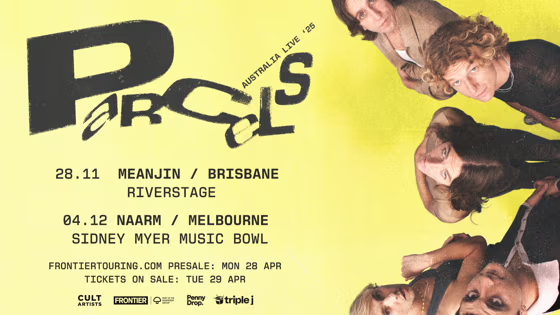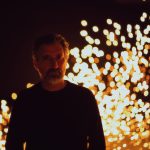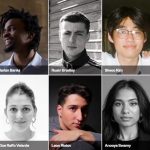

October round the corner means it’s time to reevaluate the stack of sarongs, reactivate a yoga class subscription to get Bali-ready, and start planning for the 2024 edition of the Ubud Writers and Readers Festival. Established in 2004 by Janet DeNeefe, it is considered Southeast Asia’s biggest and most meaningful literary festival.
This year everything is bigger and better than ever, with more speakers, dynamic panels, more South- East Asian writers, famous literary superstars and breakthrough debuts. As Hannah Curtis told us, “Everyone said yes!”
There’s also a whole new day dedicated to the climate and all aspects of environmental justice and healing, from food and fashion to policy and regeneration.





Irresistible Magazine went deep into the terrain with Hannah Curtis, the Head of International Programming, and the woman who has all your favourite writers on WhatsApp. We found out what she’s most excited about in this year’s line-up, how she landed one of the best jobs going, and we even squeezed her top tips for a literary stay in Ubud out of her.
When did you first come across Ubud Writer’s and Reader’s Festival yourself?
I’d always gone to Sydney and Melbourne Writer’s Festivals, and I love the Festival of Dangerous Ideas. I knew Bali and Ubud well as I’d been coming to the island and the rest of Indonesia for years. I was aware of the festival of course, I was already working in the fine art and ideas space, and I knew it would be such an interesting festival to contribute to. Indonesia is so vibrant and I knew it would be incredible to work in a place like that. But the first time I came to the festival was when I was working here.
How did you get the job?
I reached out to Janet, she knew my work, and the rest was history. We were actually in touch just before the pandemic and I was going to come on board in 2020, but in the end my first year was 2022.
Did you want to work in Bali or did you want to work at a literary festival?
Both. I wanted to work in a non- Western dominated culture and environment, and I was really excited to get deeper into programming because it gives us a space to have important conversations as a community. In the advent of technology a lot of discussions take place online, and I think there’s something really important and needed and special as humans for us to come together and reflect and discuss. Literary festivals are one of the few places in the world where this kind of opening up happens regularly.




What did you study?
Cultural Studies at Macquarie University, and a post graduate degree in Art History at the University of Melbourne.
What other jobs did you have before this one?
I worked at The Art Gallery of NSW then for five years I was at the National Gallery of Victoria. After that I moved to the Melbourne Book Fair, working alongside Megan Patty. I feel like I fell into programming organically. I like using programming as a form of activism and a way for voices to be heard equally. I want to facilitate conversations and make sure everyone is listened to, so I love giving space to voices that might not normally, or often be expressed to this audience.
How do you think of your role?
I think of myself as working in the creative arts. The work can be very creative; putting myself in the mindset of an author that’s trying to get published, or what’s it like to be an author from South- East Asia. I’m here to put the puzzle together. On the other side, there are so many human rights issues in the world at the moment that the festival becomes a human rights festival out of necessity. So I know I’m tapping into my own activism. Of course, sometimes I feel like I’m working in logistics.


What kind of activism are you most drawn to?
I feels passionately about human rights- women’s rights, basic human rights, housing for all, food for all, inequality, racism, basic things that I think we all see and want to help out with. I believe there’s so much commonality that can come out when we meet in a space like a literary festival. I feel like I’m able to make a difference.
What are you most excited about on this year’s programme?
I’m really looking forward to the discussions around journalism, obviously with Maria Ressa, and I can’t wait for Paul Caruana Galizia’s opening address. I’m proud of the panels we’ve put together on the USA election, motherhood, the Palestinian crisis, representation and our breakthrough debut novelists.



 The theme of this year’s Festival, ‘Satyam Vada Dharmam Chara,’ originates from the epic Hindu scripture, the Mahabharata. Translated as Speak the Truth, Practice Kindness, it emphasizes truth and kindness as an essential human quality. It is linked to the philosophical concept of Balinese Hinduism, ‘Tri Pramana’, the three powers within humans: Bayu (wind), Sabda (speech), and Idep (mind), representing the abilities to live, speak, and think.
The theme of this year’s Festival, ‘Satyam Vada Dharmam Chara,’ originates from the epic Hindu scripture, the Mahabharata. Translated as Speak the Truth, Practice Kindness, it emphasizes truth and kindness as an essential human quality. It is linked to the philosophical concept of Balinese Hinduism, ‘Tri Pramana’, the three powers within humans: Bayu (wind), Sabda (speech), and Idep (mind), representing the abilities to live, speak, and think.
“This year we will present a program that explores how words and ideas can shape public discourse, influence societal norms, and how writers can amplify the values of truth and kindness, against a world that is increasingly going the other way’, said Janet DeNeefe, Festival Founder and Director.








What about inclusion and sustainability at the festival?
We have a programme that’s 50% Indonesian and 50% international. We have consciously de-centred the West so we are fundamentally inclusive. We have really increased our environmental content and this year have a whole sustainability and climate day.
What’s your horror story?
It’s the same horror story every year. Traffic. There’s so much we can’t control in Ubud and the flow of the traffic is very unpredictable. Living in Bali is about going with the flow, so that’s what we have to contend with. People miss their programme, and speakers sometimes turn up halfway through an event because they’re stuck in a jam. But we manage, people jump on when they can. We’re part of a bigger organism and everything fits together somehow. We make it work.






Who’s been your favourite writer who you have spent time with?
Vandana Shiva. She’s so powerful. Absolutely brilliant and a mesmerising speaker.
What do you think is happening in the literary festival world?
I’ve been surprised at how other festivals such as in the music scene have been closing down. My feeling is that people still want a very human experience and gathering at a literary festival is the ultimate in-person event. You can bump into some of your favourite writers on the patio at Indus at our festival, and most of the time they’re more than happy for a chat, you can even buy them a drink. You can’t beat that!
Who are your ones to watch?
Alan Murrin is in our Breaking Through: The Debut Novel talk along with Aube Rey Lescure. I’m a huge fan of the work of Ali Cobby Eckermann and Hanako Footman.















